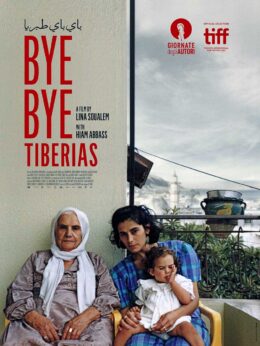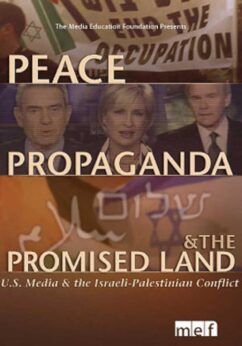
As the horror continues and multiplies in Palestine/Gaza, we are all busy trying to arm ourselves with as many historical facts as possible to try to understand the complicated history of the Middle East, specifically Palestinian/Jewish relations. In order to better understand the history of the region and the films that we’ll be reviewing, we should know that the modern nationalist Zionist movement was founded in 1896 by Theodor Herzl and continued a perpetual search for a homeland for the Jews. Palestine was not the first choice.
After WWI and the breakup of the Ottoman Empire, the British were awarded by the League of Nations the mandate to govern the land then known as Palestine. In practical terms and actual intent, the British Mandate regime established a British High Commissioner in Palestine to administer the implementation of the promise of a homeland in the Balfour Declaration. The British authorities interpreted it as facilitating the establishment of a Jewish State in Palestine. Thus they adopted the policy of a massive flow of Jewish (Zionist) immigrants into Palestine to swell their numbers from 10% in 1920 to as much as 33% in 1935. British policy enabled the transfer of publicly owned Palestinian land to establish colonies for Zionists only. Absentee landlords from Beirut & Damascus helped by selling large plats of land in northern Palestine to become Zionist-only colonies, and forcibly evicting Palestinian tenants and sharecroppers from their ancestral lands. Zionist land ownership in 1920 totaling 2.5% had doubled to 5% in 10 years.
The British faced mass protests by Palestinians against these enforced policies. By the mid-thirties, protest advanced to armed rebellion across all of Palestine. Because the British were embroiled in WWII, they promised to grant Palestinians their independence in 10 years. As the war concluded, the prospect of granting independence to Palestinians turned the Zionist immigrants into terrorist militia forces attacking the British Mandatory offices and killing military personnel. Having lost favor from both Palestinian and Zionist populations, the British announced the termination of the Mandate, giving the responsibility of resolving the Palestine question to the UN in 1947. On November 29 of that year, the UN recommended the partition of Palestine, giving 54% of the land to a Jewish (Zionist) State, while they only owned less than 7% of the land. Less than half was allotted to an Arab Palestinian State despite their population owning 93% of the land and a population twice the number of Zionists. One can only imagine the scenario if you think of your home being invaded and taken over by an outside force, which then offers to give you less than half of your house back. That’s why Palestinians refused to accept the partition and the Mandate in the first place.
During that period from 1920-1947, both Zionist Jews and Palestinians fought against British colonial rule. A new film that premiered at the Toronto International Film Festival this year deals with this specific history of British rule and the violent battles to drive them out. British imperialism played a major role in creating the debacle in the region as it did with all its colonies. Imperialism feeds off chaos and conflict and thrives by the rule of divide and conquer.

The drama, Shoshana, directed by famed British director Michael Winterbottom (The Shock Doctrine, The Emperor’s New Clothes, The Road to Guantanamo) is centered on the British occupation of Palestine in the ’30s. It takes place during the time British ships were bringing Jews to Palestine regularly. Palestinians were willing to accept the immigrants if they could live together peacefully in one state, but could not accept the unfair partition offered by the UN. There were, in addition and not to be forgotten, Socialist Zionists who held the idea of Jews and Arabs living together peacefully in this enforced “homeland.”
The film centers also around a love affair between a British policeman and a Jewish female reporter, something considered not rare in those early days. There were two main militant Jewish groups, the more violent Irgun and the more moderate Haganah, who began fighting the British (and eventually the Palestinians). An even more militant group, the Stern Gang, a name tagged by the British, broke off from Haganah when it adopted the plan to support Great Britain in its fight against the Nazis. Irgun proudly called themselves terrorists and were responsible for endless acts of barbarism and depravity against the British and the Palestinians, but were considered heroes to Zionists.
Unfortunately, Jewish Zionists and Palestinians never worked out how to live together. When the British were eventually driven out, the unjust partition ordered by the UN made matters worse when the Palestinians refused to accept the division of their homeland into two states. The Jewish Zionists took full power of the area, violently driving out as many as 750,000 of the Palestinians from 1947-49 in what Palestinians call the Nakba (Catastrophe), and the Jewish Zionists call Israel’s War of Independence. Many wars of death and destruction have followed since, while the U.S., the new empire replacing the British one, maintains Israel as its Middle East lookout, its proxy to maintain power in the region.
 Another debut at TIFF is Bye Bye Tiberias, a moving documentary and tribute to the popular Palestinian actress Hiam Abbass, covering decades in the life of her family. It’s filmed with insight and intimacy by her daughter, Lina Soualem, who documents four generations of women sharing their memories and stories of survival. It’s not as much a film about her mother the actress/director, but about the four generations of family in Palestine and Hiam’s many sisters. The film addresses the trauma of the Palestinian Nakba and how it affected the generations of women; however, very little is said of Israel throughout the entire documentary. Abbass is a Palestinian Arab Israeli born in Nazareth who moved to France in the early 80s, and now carries dual citizenship. This movie has an underlying hope, revealing Abbas as an inspirational and successful artist who’s appeared in many films showing the plight of Palestinians in their brave and just fight against the Israeli Occupation. As the cinema world accumulates great works of art about Palestine it’s a wonder how often Palestinians can view their history of losses and pain. Lina Soualem used a wealth of family film archives, showing how they maintained their life and legacy after all they went through, how they were able to influence the world around them and to transmit their values to following generations.
Another debut at TIFF is Bye Bye Tiberias, a moving documentary and tribute to the popular Palestinian actress Hiam Abbass, covering decades in the life of her family. It’s filmed with insight and intimacy by her daughter, Lina Soualem, who documents four generations of women sharing their memories and stories of survival. It’s not as much a film about her mother the actress/director, but about the four generations of family in Palestine and Hiam’s many sisters. The film addresses the trauma of the Palestinian Nakba and how it affected the generations of women; however, very little is said of Israel throughout the entire documentary. Abbass is a Palestinian Arab Israeli born in Nazareth who moved to France in the early 80s, and now carries dual citizenship. This movie has an underlying hope, revealing Abbas as an inspirational and successful artist who’s appeared in many films showing the plight of Palestinians in their brave and just fight against the Israeli Occupation. As the cinema world accumulates great works of art about Palestine it’s a wonder how often Palestinians can view their history of losses and pain. Lina Soualem used a wealth of family film archives, showing how they maintained their life and legacy after all they went through, how they were able to influence the world around them and to transmit their values to following generations.
At this relevant time in history, it behooves us to learn as much about the history of Israel/Palestine and the region. Here are some great films that the cinema world has to offer to arm ourselves with the important facts:
 Peace, Propaganda and the Promised Land (2014), produced by Sut Jhally and the Media Education Foundation, is one of the most all-encompassing studies of coverage of the Palestinian issue. The first part can be viewed here.
Peace, Propaganda and the Promised Land (2014), produced by Sut Jhally and the Media Education Foundation, is one of the most all-encompassing studies of coverage of the Palestinian issue. The first part can be viewed here.
Two of the most powerful cultural pieces about Palestine are 1), Al Helm: MLK in Palestine (1993). Director Connie Field follows an African-American team of actors to Palestine to produce, along with Arab actors, a story of MLK and his dream, similar to both cultures; the trailer can be seen here. And 2), Knowledge Is the Beginning (2005). The extraordinary work of Daniel Barenboim and Edward Said to create a Jewish-Palestinian orchestra has resulted in probably the most powerful and moving documentary demonstrating the power of music to heal the world.
Here’s a chance to see Hiam Abbass in action for free online, in Gaza Mon Amour (2020).
And finally, here’s a website that, because of the tragedies in Gaza, is offering access to many of the great Palestinian films, many of them free to watch.
We hope you appreciated this article. At People’s World, we believe news and information should be free and accessible to all, but we need your help. Our journalism is free of corporate influence and paywalls because we are totally reader-supported. Only you, our readers and supporters, make this possible. If you enjoy reading People’s World and the stories we bring you, please support our work by donating or becoming a monthly sustainer today. Thank you!










